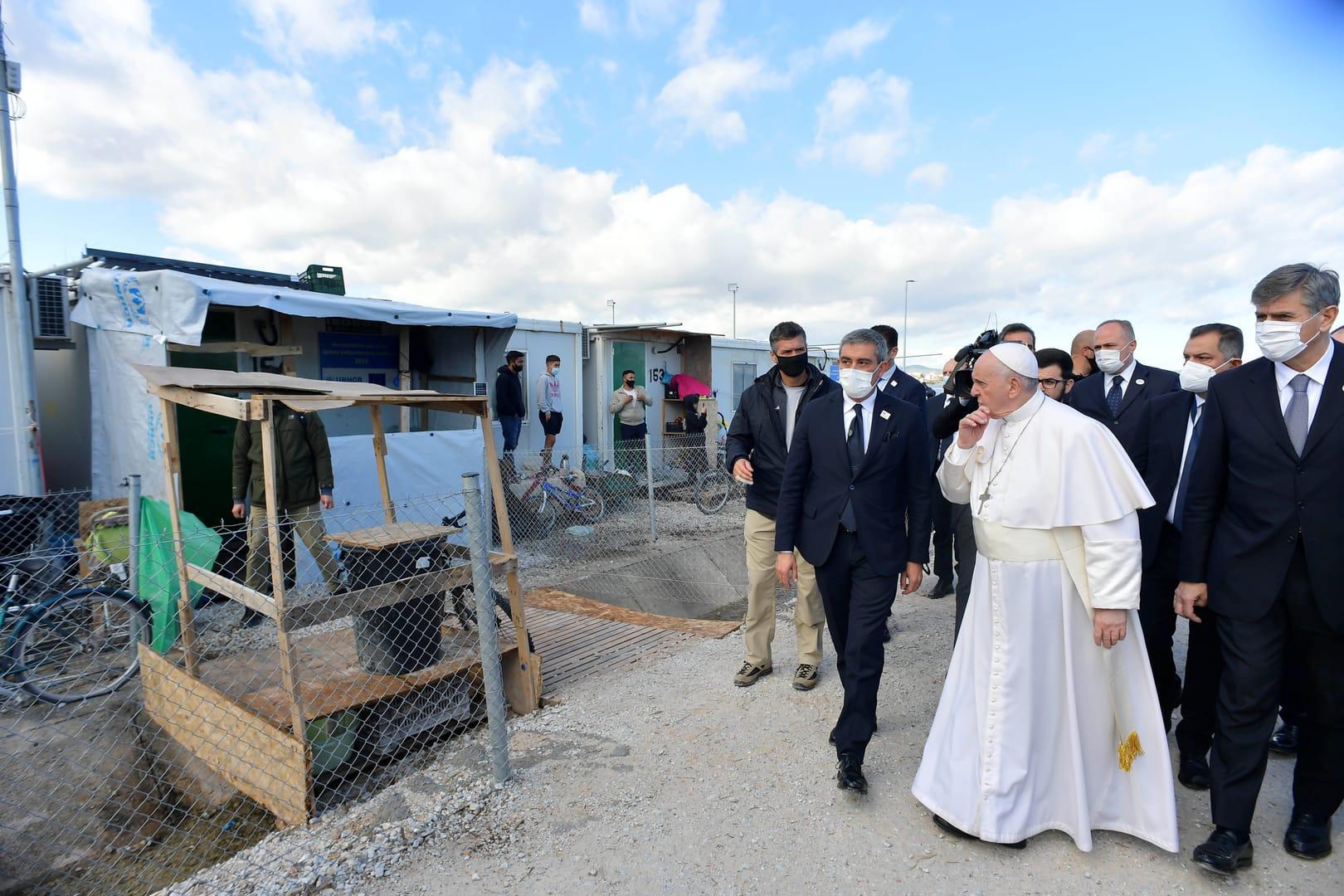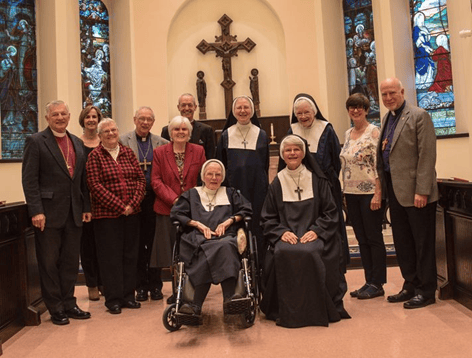LESBOS – When Pope Francis visited the Greek island of Lesbos Sunday, he acknowledged the struggles that many have faced not only in their journey to Europe, but in their daily lives and the prejudices they often face.
The pope urged the world to stop looking the other way, insisting that to solve the migrant crisis, “what is needed are not unilateral actions but wide-ranging policies.” That’s precisely what migrants living on the small Greek island hope will change as a result of the pope’s presence and advocacy.
Speaking to Crux, Landrid, a 42-year-old migrant from Cameroon, said he’s been living in the Lesbos camp for nearly three years and has had his application for asylum rejected twice, because he was unable to make it to the initial interview when he first went through the process.
“Now I don’t really know what I’m waiting for. It’s been one year and four months since my second rejection. There’s nothing going on in my case, my case is stopped. They tell me all the time, you have to wait, but for how long I don’t know,” he said.
Landrid said he came to Greece through Turkey in 2019 when members of an armed militant group in Ambazonia known as the “Amba boys,” stormed his house and accused him of leaking names of the group to the police, leading to their arrest.
During the incident, the militants killed his wife and threatened to kill him too, but he managed to escape with his three children.
“That’s why I had to leave very fast, and the only way I had was to go to Turkey, because it was very easy, without any time to wait,” he said, saying that he, like many others who follow the same path, crossed over to Greece in a flimsy boat, which he described as “a small balloon.”
Given the precariousness of the journey, Landrid left his three children behind in the care of his mother. However, his mother died while he was orchestrating his passage from Turkey to Greece, and he does not know where his children – aged 17, 10, and eight – ended up.
He said he has not seen them in four years, and it has been two years since he has heard from them, he said.
“I don’t know where they are. I hope they are good. I’ve tried to look for them through the Red Cross, but I still don’t have any answer. So, I’m waiting. I hope that maybe I will meet them one day. I don’t know,” he said.
In terms of where he wants to go, Landrid said he was hoping to stay in Greece, but since his asylum request was denied, he doesn’t know where to go and is prohibited from leaving the camp.
Landrid, who is Catholic, said he is “very happy” the pope came to Lesbos, saying that even when he was in Cameroon, “it was a dream for me to meet the pope.”
“I hope that with this visit maybe something can change,” he said. “I pray for that, I hope that maybe the pope can ask or try to arrange with the Greek government and the European Union to do something to make asylum processes be more flexible.”
“When you leave your country and you come and stay here for more than three years, it’s not good. Maybe you don’t have a right to have asylum, but they don’t have to keep you like a prisoner,” he said, adding, “It’s very difficult.”
Jilaalizai, a 16-year-old from Afghanistan, said she came to Lesbos in 2018, and is living here with six other members of her family, including a sister and two brothers.
They made the difficult decision to leave, she said, “Because of the Taliban and because for girls, they can’t continue their education.”
At home, Jilaalizai was studying mathematics, and she wants to continue her education and go to a university.
Conditions in the camp, she said, “are not good. We are seven people in my family, and we are living in a small tent, so it is very small,” and even for younger children, “there is not any education.”
The family, whose asylum requests have been rejected twice, are awaiting an answer to their third attempt.
Asked where they want to go, Jilaalizai said they don’t have a specific country in mind, “but a place where I can continue my education and be safe with my family.”
Referring to Pope Francis’s visit, she said, “I hope that when he comes here he changes many things,” including the difficulty in gaining asylum.
Similarly, Shafaei Mohammad Reza, along his wife Shafei Masooma, and their five children, who also come from Afghanistan, said he believes the pope’s presence in Lesbos “is not without mercy,” and voiced confidence that “good things will happen” as a result.
The family, who are Muslim, have been living in the Lesbos camp for three years, and hope that one side-effect of the pope’s visit is that “the problems in the asylum cases of people who have been here for a long time will be addressed.”
In the future, Mohammad said they would like to move to Finland, where he hopes “to be a good representative for my children and my family.”
Of the 2,200 people living in the Lesbos reception center, most are from Afghanistan, although there are also many who come from Syria, Somalia, the Congo, and elsewhere in Africa and the Middle East.
Some migrants in the camp, including a Syrian family who has been in limbo in Lesbos for six years, complained that there has been prejudice in the asylum process, with requests from Afghan families being processed more quickly, while others linger for indefinite periods of time with no clear sense of when they might be able to move on.
In brief remarks at the beginning of the gathering after Pope Francis had arrived, Greek President Katerina Sakellaropoulou, who joined the pope in Lesbos, called him a “protector of the poor and persecuted.”
Follow Elise Ann Allen on Twitter: @eliseannallen













